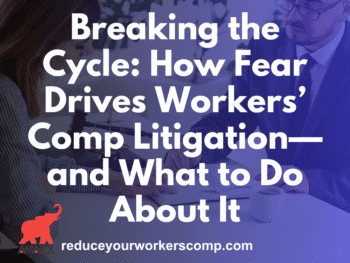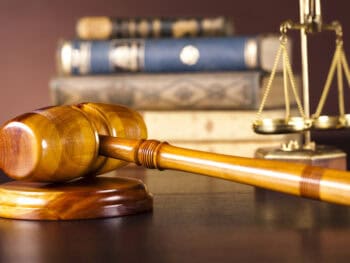A medical-legal conference is an informal meeting between counsel and physician to discuss the medical aspects of a claimant’s case. As opposed to a deposition, no record of the conference is made, thus allowing for a free and open exchange of ideas and inquiry. Collette S. Griffin, Esq. & Christopher M. Russo, Esq. Howd & Ludorf, LLC, provide detailed information about these “med legal” conferences in Connecticut. These discussions are appropriate to better educate counsel as to the medical aspects of the claim, to obtain in- depth analysis of the best medical course of action for the claimant, to prepare the physician for testifying, and to assist in resolution of the case. Parties can also use a medical-legal conference to learn physicians’ opinions without creating a record that can be used against them. In Connecticut, the professional guidelines provide direction as to the cost and scope of a medical-legal conference. Such meetings can be ex parte between the treating physician and claimant’s counsel, or the respondent’s examiner and respondent’s counsel. While neither counsel has the right to an ex parte meeting with the opposing party’s physician, it is not uncommon for both counsel to meet with a physician to obtain an informal medical opinion without the costs associated with a deposition. I. Medical-Legal Conferences are a Learning Tool These discussions should be used as a learning tool for both counsel and physician. An informal meeting provides a collaborative setting for counsel to consult with a physician to ensure that the physician has the right medical history, as well as to share additional information, such as medical documentation, surveillance, or the claimant’s job description, which may impact the physician’s ultimate opinion. It also allows counsel and physician to learn more about the salient aspects of the other’s discipline. Counsel should use these meetings to obtain a greater depth of understanding of the medical issues inherent in the case. Workers’ compensation cases often involve medical questions outside the expertise of a litigator. At a medical-legal conference, counsel can ask the physician to explain the physiological, and in some cases psychological, components of the claimant’s injuries. Physicians can also educate counsel as to the medical analysis utilized in evaluating the claimant’s injuries, and what further testing or treatment many be available. Similarly, counsel can also educate the physician as to the legal standards involved in the workers’ compensation process. Physicians may not fully understand what it means for an injured worked to have a disability, or a work capacity, in the legal context. They may not have an understanding as to whether or not whole body ratings are recognized, or whether they are bound to use the current edition of the AMA guidelines. Medical-legal conferences should be used as an opportunity for counsel to explain specifically what they are looking for, so that the physician is better enabled to comment on the same. II. An Opportunity for Consideration Future Medical Treatment Medical-legal conferences are also useful tools for evaluating the proposed future course of treatment and/or treatment options. An injured worker can often be treated in a variety of ways, ranging from conservative care such as physical therapy or chiropractic care, to potentially several surgical options. Each differing medical course of action presents its own costs, risks, and potential benefits. Even where it is agreed that a claimant needs surgical intervention, there are frequently disputes as to which procedure is appropriate, and what level of relief can be expected. A medical-legal conference offers counsel and physician the opportunity to discuss these options in far greater detail than what is possible in the confines of a typical medical report. Counsel can use the opportunity to obtain a physician’s opinions as to anticipated periods of future disability and the likely degree of permanent impairment. As counsel for both claimant and respondent learn more about what to expect in the future reading a specific medical treatment, they are better able to counsel their clients as to whether or not such treatment is worthwhile. Counsel can also ask physicians to comment on the opinions provided by other physicians who have treated and/or evaluated the claimant. As physicians often differ in their analysis and recommendations, it can be instructive to have a physician explain not only the advantages of a particular course of action, but also why the options recommended by other physicians are lacking. III. Preparation for Testifying Medical-legal conferences are often used to prepare the medical provider for deposition and/or trial. Some physicians are more seasoned than others in terms of serving as a witness in a workers’ compensation case. Counsel can advise physicians as to what to expect about testifying in general, and what to expect in terms of specific questions about the medical aspects of the case at hand. Counsel can also explain what is at issue from a legal perspective, and what precise medical opinion each party is looking for. Ex parte meetings with the party’s own physician also enable counsel to learn the nuances of the physician’s testimony before it is given on the record. This better enables counsel to prepare the physician for testifying, and to anticipate and respond to questions and issues at deposition or trial. Counsel can also ask the physician to explain the deficiencies in the opposing physician’s findings and conclusions. This information is particularly helpful in preparation for taking the deposition of the opposing expert, as counsel can seek an in depth explanation of why the opinion of the opposing party’s physician is incorrect from a medical perspective. This information allows counsel to have a better understanding of, and present their client with, the strengths and weaknesses of their own case prior to trial. The better the level understanding a physician has of the legal issues and the positions of the parties involved, the better prepared he or she will be to testify as to the specific medical details of the case. This preparation is key in bolstering the credibility of the physician as a witness, and the credibility of the individual physicians is often the dispositive factor in a Commissioner’s ruling. IV. Assisting in Claim Resolution In essence, the medical-legal conference is a learning tool that helps to narrow the scope of the unknown in terms of the current and future medical and work capacity issues in the case. Medical-legal conferences will enable the parties to obtain a greater understanding of the medical issues involved, the available treatment options, and the likely consequences thereof. Counsel will have the opportunity to prepare the physician to testify, and to examine the likely nature, credibility, and efficacy of that testimony. Thus, the physician will be a better witness, and counsel will be a more effective advisor and advocate for the client. This knowledge can help steer a claim towards resolution. As the parties learn more detail about the medical aspects of the case and respective strengths and weaknesses of their position, they are better enabled to make decisions as to which issues need to be tried, and which issues can be resolved without the time and expense associated with fully litigating each issue to conclusion. Authors: Collette S. Griffin, Esq. & Christopher M. Russo, Esq. Howd & Ludorf, LLC, Hartford, CT Contact Info: 860-249-1361; http://www.hl-law.com/ IF YOUR STATE HAS MED-LEGAL CONFERENCES, LET US KNOW. Becki@ReduceYourWorkersComp.com FREE WC IQ Test: http://www.workerscompkit.com/intro/ WC Books: http://www.reduceyourworkerscomp.com/workers-comp-books-manuals.php TD Calculator: www.ReduceYourWorkersComp.com/transitional-duty-cost-calculator.php
Does YOUR State Allow Informal Conferences Between Defense Counsel and Claimant Doctor
Do not use this information without independent verification. All state laws vary. You should consult with your insurance broker about workers’ comp issues. ©2009 Amaxx Risk Solutions, Inc. All rights reserved under International Copyright Law. If you would like permission to reprint this material, contact Info@WorkersCompKit.com
















